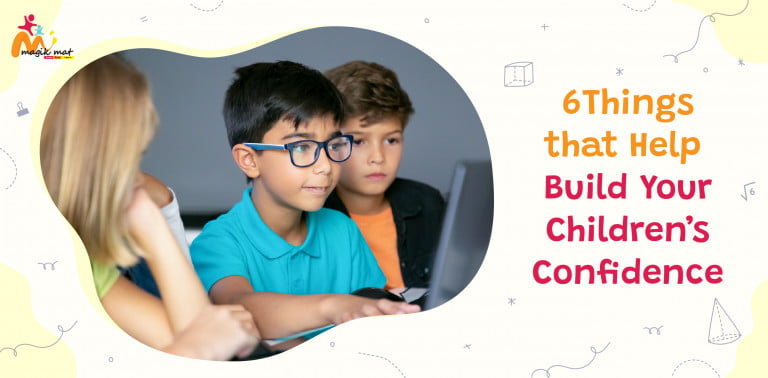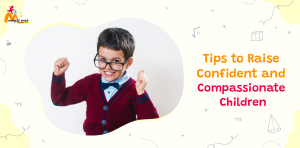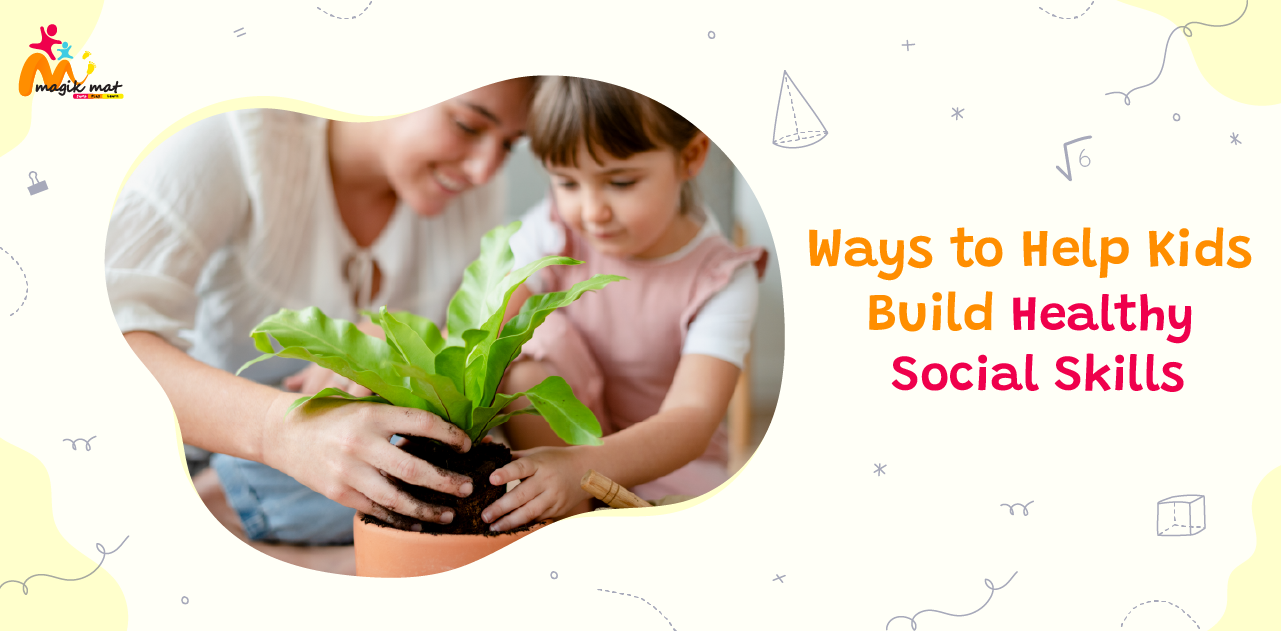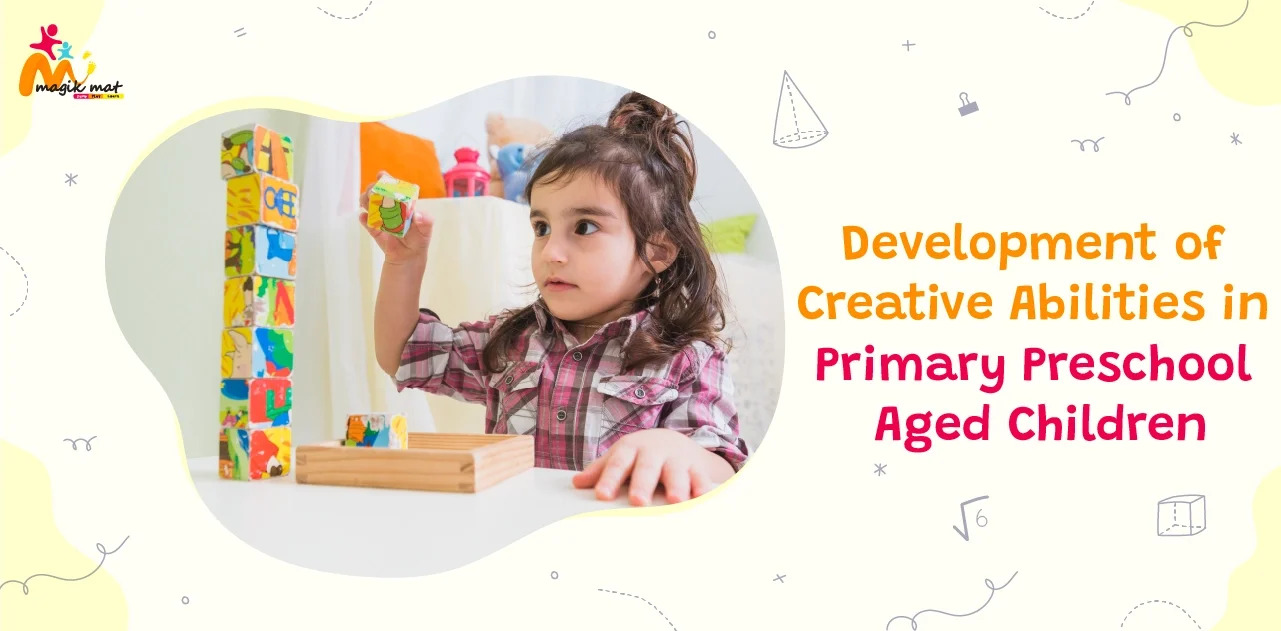Confidence is a crucial aspect for individuals of all ages, including children. Children often look to their elders and their environment to shape their self-assurance. Children are keen observers of the world around them, and it’s essential to consider how they can develop and maintain their self-confidence, as well as the various strategies that can help them achieve this goal. Let’s explore some factors that can help build your children’s confidence.
Why is Confidence Important?
Confidence holds significance across multiple facets of life, encompassing personal, social, and professional realms. Below are some fundamental reasons illustrating its importance:
Self-Esteem and Self-Worth:
Confidence is intricately tied to self-esteem and self-worth. When you possess confidence, it arises from a positive self-image and a profound belief in your own abilities and inherent value as an individual. This plays a pivotal role in promoting overall mental and emotional well-being.
Achievement:
Confidence frequently paves the way for elevated levels of accomplishment. When you have faith in your abilities, you are inclined to establish and pursue ambitious objectives, embrace challenges, and exhibit resilience when confronted with obstacles. These dynamics can ultimately lead to increased success in diverse aspects of life, including academics, career pursuits, and personal aspirations.
Effective Communication:
Confidence is key to effective communication, enabling clear expression, persuasive engagement, and the ability to overcome communication barriers. It empowers individuals to connect with others, resolve conflicts respectfully, and achieve their communication goals more effortlessly.
Networking and Social Interactions:
Confidence can boost your capacity to establish and sustain relationships. Confident individuals often attract others due to their approachability and engaging nature, proving especially advantageous in networking, forging friendships, and creating meaningful connections.
Health and Well-Being:
Confidence can exert a beneficial influence on both physical and mental well-being. It has the potential to alleviate stress and anxiety, enhance emotional resilience, and cultivate a more optimistic perspective on life.
Personal Growth:
Confidence plays a vital role in fostering personal growth and development. Believing in oneself encourages a willingness to venture beyond comfort zones, acquire new skills, and embrace fresh experiences, all of which are integral to personal growth.
Factors help you develop your kid’s confidence.
Here are some elements that can assist in nurturing your child’s confidence.
Create a Supportive Environment:
To create a safe and nurturing home environment for your children to freely express themselves and share ideas without fear of criticism, prioritize active listening, avoid judgment, and encourage open communication. Respect differences, validate their emotions, and model respectful behaviour. Teach conflict resolution to help them handle disagreements constructively.
Encourage Interests:
Foster your children’s hobbies and interests to boost their mastery and confidence. Encourage exploration, celebrate their achievements, and teach resilience through the learning process. This helps build their self-identity and self-assurance, which are valuable assets for their future.
Provide Opportunities for Learning:
Nurture a love for learning by exposing your children to new experiences, including books, travel, and educational products like Magik Mat. This educational product offers engaging activities that boost self-confidence through fun and learning.
Set Realistic Goals:
Fostering your children’s self-confidence involves guiding them to set realistic and reachable goals. By encouraging them to identify and work towards objectives that are well-suited to their age and abilities, you empower them to experience the satisfaction of accomplishment. These objectives can be in various aspects of their lives, such as academic, extracurricular, or personal growth. Providing the right balance between challenge and achievability helps them build a strong sense of self-confidence as they steadily conquer these milestones.
Provide Constructive Feedback:
When offering feedback, concentrate on specific actions or behaviours rather than forming overall judgments about their capabilities. Providing constructive criticism assists children in enhancing their skills without negatively impacting their self-esteem.
Offer Support:
Offer unwavering support to your children during challenges or setbacks, creating a safe space for them to express their feelings. Assure them of their ability to overcome difficulties while emphasizing the value of resilience and perseverance. Encourage realistic expectations, celebrate their efforts, and promote reflection on their experiences to foster confidence and resilience in facing life’s adversities.
Teach Emotional Intelligence:
Teaching your children to understand and manage their emotions is crucial for their self-awareness, stress management, and building positive relationships. It equips them with lifelong skills that foster self-confidence and adaptability.
Conclusion:
Confidence acts like a special superpower for kids. When they have faith in themselves and their talents, incredible things become possible. It encourages them to explore new experiences, build new friendships, and acquire fresh skills. Making mistakes is part of the journey, as it’s how they learn and become even better. So, being confident is like having a magical tool that helps kids discover their true potential and achieve wonderful things.





